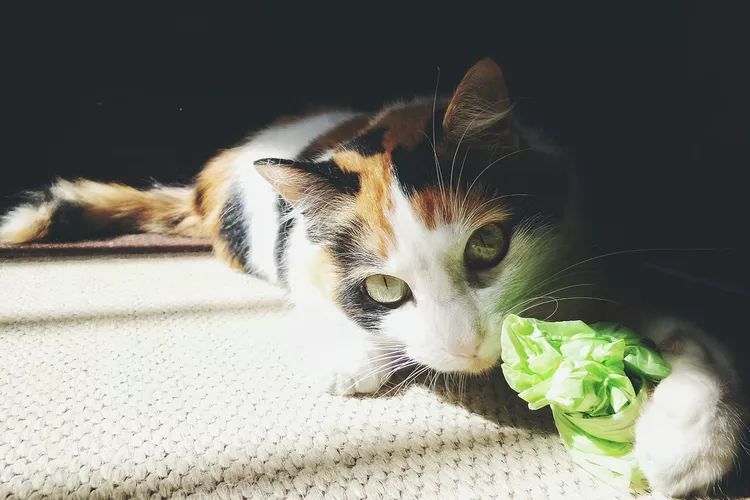
Some cats are a lot like puppies and enjoy chewing on objects. Plastic items are some of those objects that many cats take a liking to, but why? And is it dangerous if a cat chews on or eats plastic?
Cats that are teething are more likely to chew on items than adult cats and this is completely normal. Kittens lose their baby teeth and grow a full set of adult teeth between 3.5 and 7 months of age. Different teeth will fall out at different times, but the drive to chew may be stronger during these 4 months while your kitten attempts to get relief from the 30 new teeth that are coming in.
Kittens love to play with small objects and sometimes they grab these objects, such as bottle caps, bottle nipples, or rubber bands, and put them in their mouths. Once they feel the texture of the items, they often continue the behavior and seek out items with a similar texture.
Adult cats may take a liking to chewing on certain textures. The attraction to a specific item may have started after it was covered or filled with catnip, treats, or another tasty edible, or it may have blossomed out of pure curiosity. Some cats are more adventurous than others and may lick or bite items to see what happens and when the item makes a fun noise or has an interesting taste, they continue.
Adult cats may also start chewing on plastic if they experience dental pain in an attempt to soothe their hurting mouth. If you suspect your cat has dental disease or discomfort, be sure to get it examined by your veterinarian.
Pica is a term used to describe an eating disorder where items of no nutritional value are consumed like litter or dirt. Since plastic has no nutritional value, you could argue that a cat that chews and then consumes plastic has pica. Most cats that lick or chew plastic, though, start doing so because the object tasted good or they enjoyed playing with it, not because they have an eating disorder. But stress may cause a cat to do irrational things and therefore develop pica as a response to being stressed. Cats may also turn to this behavior out of boredom.
Cats that have aggression issues may begin chewing on plastic cords and other items around the house in an attempt to express their emotions. These aggressive behaviors can be a sign of pain, poor socialization, and stress, among other things.
Your cat may chew on some plastic items without an issue, but many items pose a potential danger to your feline friend. Plastic items that are small enough for your cat to fit completely in its mouth pose a swallowing or choking hazard. They could also cause injury to the teeth and gums.
Plastic items can cause gastrointestinal obstructions and prevent food and water from passing through the body or puncture or tear the stomach or intestines if the item has sharp edges or corners. If your cat consumes plastic, it will need to be removed. Sometimes your veterinarian will recommend making your cat vomit the item up, but this is not the case for all plastic items, and inducing vomiting is not always successful in cats. If there is concern for gastrointestinal obstruction or damage, surgery or endoscopy to remove the item from your cat should be performed by your veterinarian. These procedures require general anesthesia and are not without their risks, so it is always best to prevent your cat from eating plastic in the first place.
Stress and anxiety can be lessened and sometimes prevented in cats. Pheromones and supplements can help reduce the stress of environmental changes. Medications can ease serious cases of anxiety. By helping to decrease the amount of stress your cat experiences, you will hopefully lessen the likelihood of them picking up the bad habit of inappropriate chewing. Allowing your indoor cat to slowly adjust to new things, providing safe spaces, avoiding the line of sight with outdoor cats by closing the blinds, and other techniques can also help avoid stressing out your cat.
It may be obvious, keeping plastic items out of your cat's reach is key to prevention. Pick up and dispose of plastic items such as rubber bands, plastic lids, milk jug rings, and plastic bags that are within a cat's reach to eliminate the opportunity for your cat to get its paws on it. If you don't want your cat to chew on an item, then hide it or get rid of it.
Finally, a great way to relieve boredom and keep a cat disinterested in plastic items is to attract them to items that are not plastic. Provide your cat with fun and safe toys of different textures and fabrics, use feather wands and laser pointers to entertain it, and use catnip or treats to attract it to other items you want them to play with or chew on.

10 Obscure, Little-known Canine Facts in Honor of National Dog Day
With National Dog Day upon us, it's time to celebrate everything about our favorite pets—even the weirder stuff. Here are 10 obscure facts about dogs you probably didn't know.
Exploring the Different Types of Pet-Friendly Beaches
Are you looking for pet-friendly beaches? Learn about the different types of pet-friendly beaches, their locations, and tips for visiting them with your pet.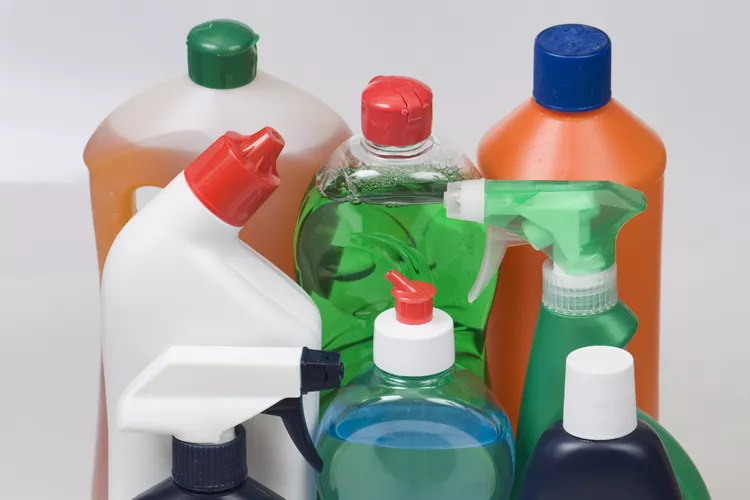
Toxic Chemicals & Household Items That Can Poison Dogs
There are many things in and around your home that can endanger your dog. Learn which chemicals and household items can poisin your dog.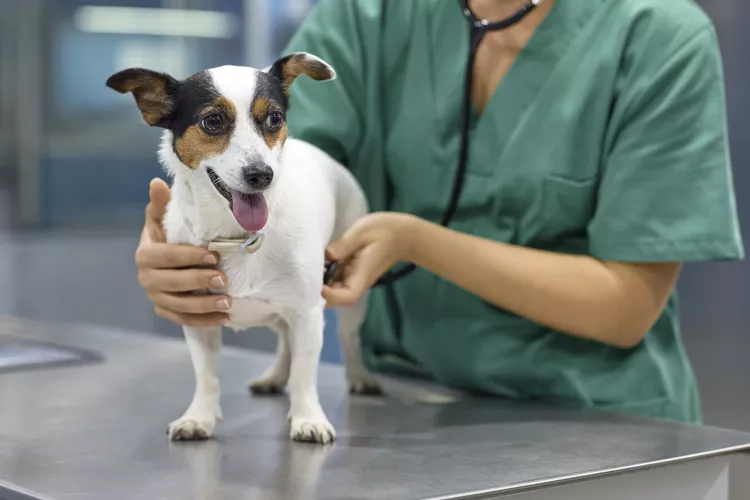
Bronchitis in Dogs
Is your dog coughing and feeling unwell? It could be due to respiratory inflammation called bronchitis. Learn the causes, treatment, and prevention.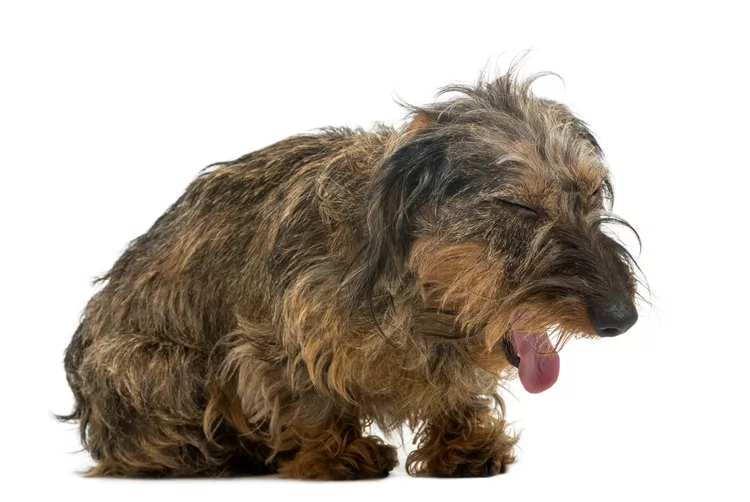
Choking in Dogs
A dog can occasionally swallow something incorrectly and start choking. Find out how you can tell if your dog is choking and what you can do about it.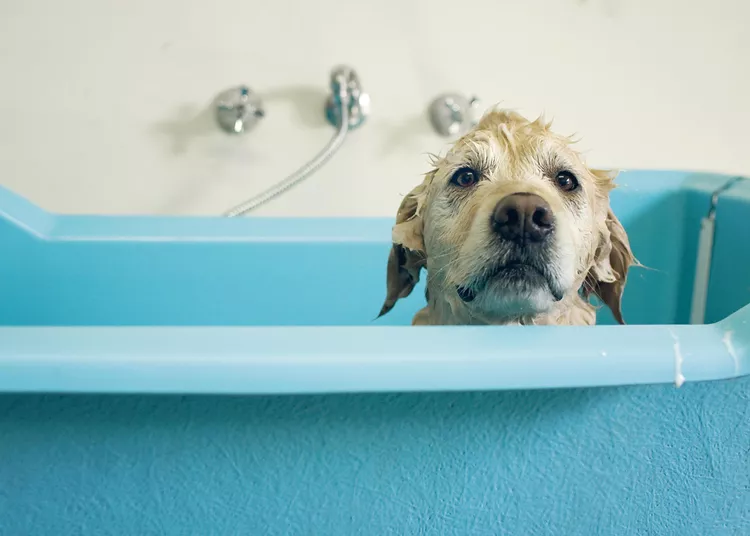
Why Does My Dog Smell So Bad?
Does your dog smell? Find out what could be causing these unpleasant odors and if it's something that needs more than just a bath to fix.
Is Rosemary Safe for Dogs?
Rosemary is used both for cooking and as a supplement with many reported health benefits in people, so you may be wondering if it is safe to give to your dog. Rosemary is considered non-toxic for dogs but with some caveats.
Can Dogs Eat Blueberries?
Dogs can safely eat blueberries. Blueberries are packed with nutrients and can be a great addition to your dog's diet when fed in moderation. Learn more about the benefits, risks, how to incorporate blueberries into their diet, and other fruits dogs can eat.
Dog Food Basics
Are you feeding your dog the best way possible? Check out these dog feeding tips to keep your dog healthy and happy.
Swedish Vallhund: Dog Breed Characteristics & Care
The Swedish vallhund makes for a high-energy and affectionate companion. Learn about the breed's history, health, exercise needs, and more.
Becoming a Show Dog: Getting Started
Do you have the perfect puppy? Have you considered showing her in a dog show? There's much more to showing than showing up! Here's how to get started.
How to Care for a Hairless Cat
Hairless cats make great pets but they aren't without their own challenges and requirements. Read on to learn how to best care for your furless feline.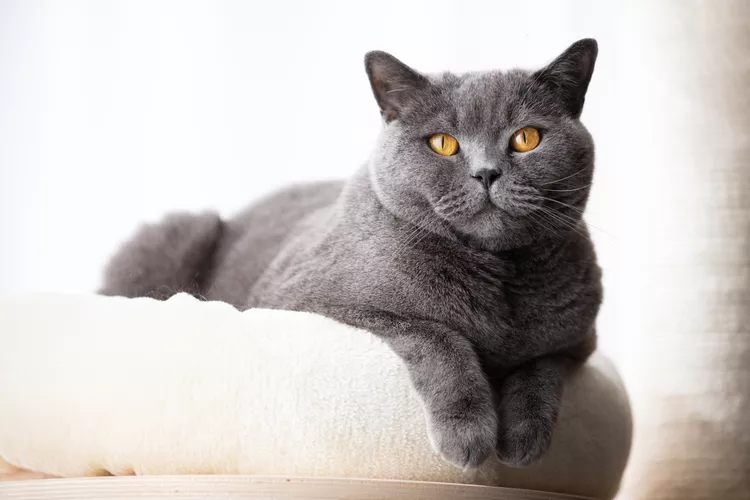
British Shorthair: Breed Profile, Characteristics & Care
The British Shorthair is a calm, affectionate cat that looks and feels like a plush teddy bear. Here's what you need to know about this popular breed, including appearance, temperament, health, and care.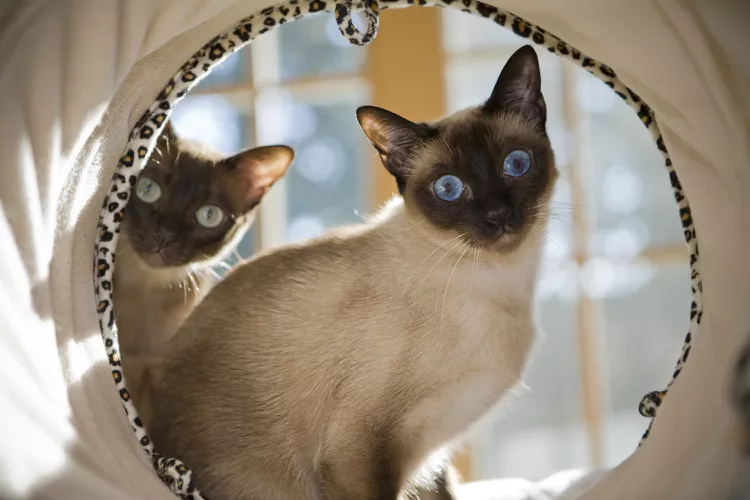
Tonkinese: Cat Breed Profile, Characteristics & Care
The Tonkinese cat is a perfect mix of the Siamese and Burmese—smart, sociable, and sweet. Learn about the Tonkinese breed.
How to Stop Your Cat From Chewing Electrical Cords
Cats are known to pounce and attack inanimate objects, like electrical cords. Learn how to prevent your cat from ambushing objects that may harm it.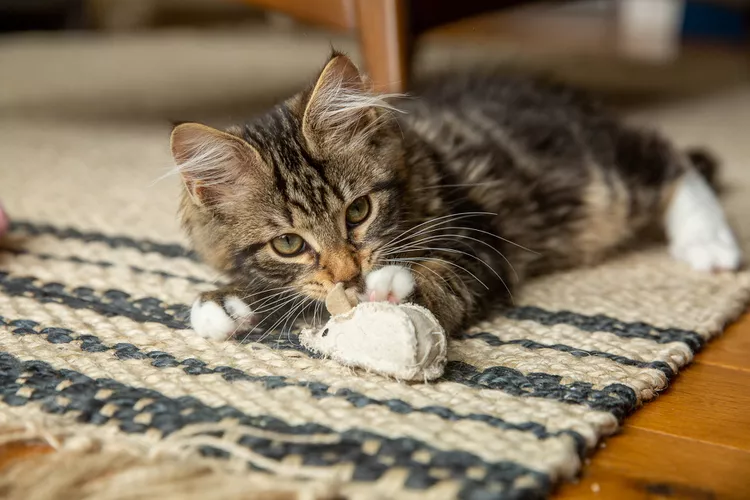
How to Stop Aggression in Kittens
Kittens may show aggressive behavior for several reasons. Sometimes their play gets too aggressive while other times the kitten is afraid or upset. Learn how to spot and curb aggression in kittens.
46 Egyptian Cat Names
Whether inspired by notable Egyptian deities, locales, or pharaohs, Egyptian cat names can bring out the divinity of your noble feline companion.
How to Tell If a Kitten is a Boy or a Girl
If you're wondering whether your new kitten is a boy or a girl, here are three ways to help determine the sex of your cat.
Signs Your Cat Is Aging and When to See the Vet
Expect some changes when your cat ages. Learn to differentiate between normal and potential medical problems for your elderly cat.
Coronavirus in Cats
Feline coronavirus (FCoV) rarely harms cats but can lead to another life-threatening illness. Learn the causes, treatment, and prevention.